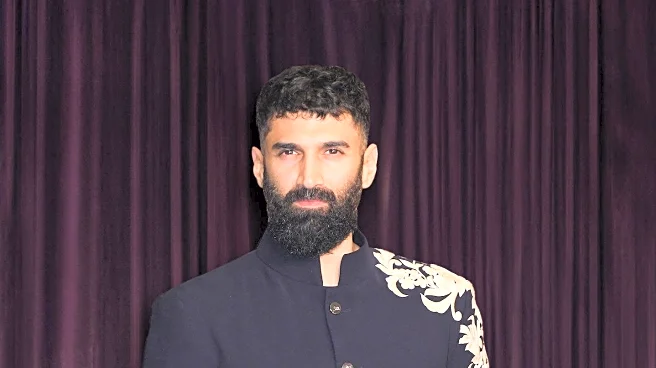What's Happening?
Electronic Arts (EA) is reportedly nearing a $50 billion deal to become a privately held company, according to The Wall Street Journal. The video game company, which has been publicly traded since its IPO in 1990, is in discussions with a group of investors to facilitate this transition. The investors include private equity firm Silver Lake, Saudi Arabia's Public Investment Fund (PIF), and Jared Kushner's Affinity Partners. Saudi's PIF, which already owns nearly 10 percent of EA, is a significant player in this deal. The move is part of Saudi Arabia's broader strategy to diversify its economy beyond oil, with substantial investments in the gaming industry, including stakes in companies like Take-Two Interactive and Activision Blizzard. Bloomberg and The Financial Times suggest that the buyout could be announced as soon as next week, although details remain unconfirmed.
Why It's Important?
The potential buyout of EA represents a significant shift in the gaming industry, highlighting the increasing influence of international investment, particularly from Saudi Arabia. This move could reshape EA's operational strategies, allowing it to focus on long-term growth without the pressures of quarterly earnings reports. For Saudi Arabia, the investment aligns with its Vision 2030 initiative to diversify its economy and reduce dependency on oil revenues. The deal, if finalized, would be the largest leveraged buyout in history, underscoring the growing financial power of Saudi's PIF in global markets. This could lead to increased scrutiny and debate over foreign investments in U.S. companies, particularly in sectors like gaming that have cultural and economic significance.
What's Next?
If the buyout proceeds, EA will transition from a publicly traded entity to a private company, potentially altering its business model and strategic priorities. Stakeholders, including employees, gamers, and industry analysts, will be watching closely to see how this change impacts EA's product offerings and market presence. The involvement of Saudi Arabia's PIF may also prompt discussions among U.S. policymakers regarding foreign ownership in key industries. Additionally, other gaming companies might consider similar moves, influenced by EA's decision and the evolving landscape of international investments in the sector.
Beyond the Headlines
The buyout could have broader implications for the gaming industry, including potential shifts in content creation and distribution strategies. As EA becomes privately held, it may explore new avenues for innovation without the constraints of public shareholder expectations. The deal also raises questions about the ethical and cultural dimensions of foreign investments in U.S. companies, particularly from countries with differing political and social values. This could lead to increased dialogue on the balance between economic growth and maintaining cultural integrity in the gaming industry.









